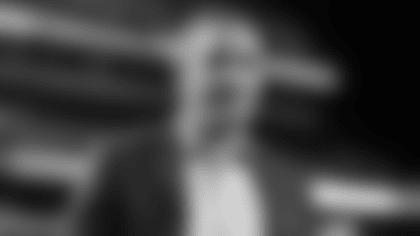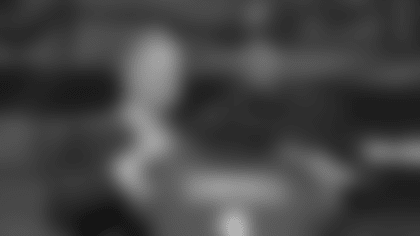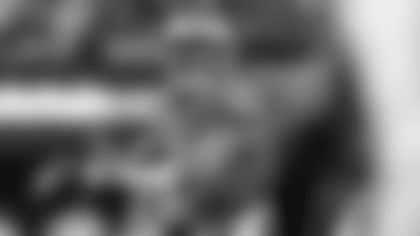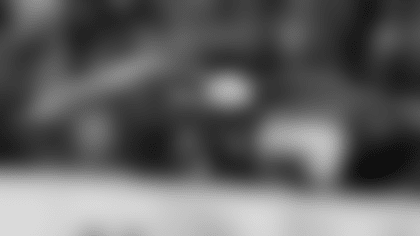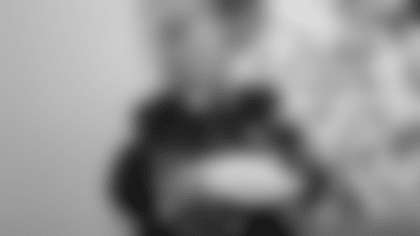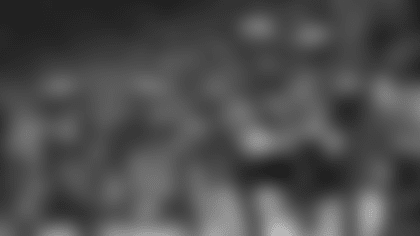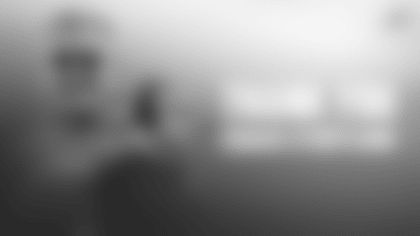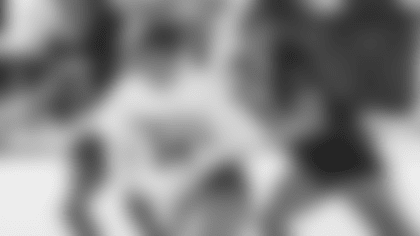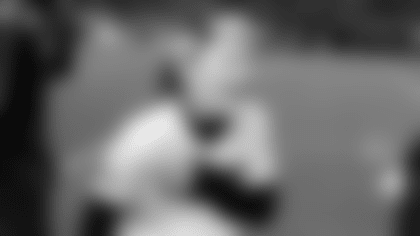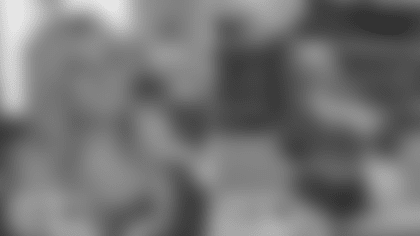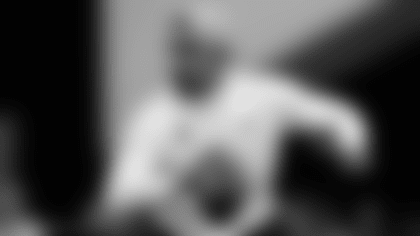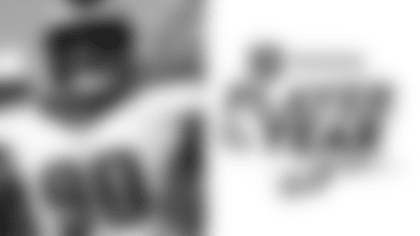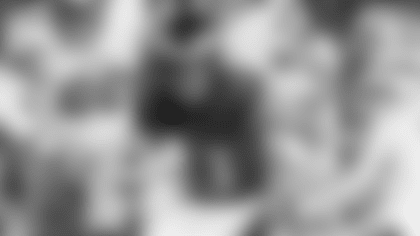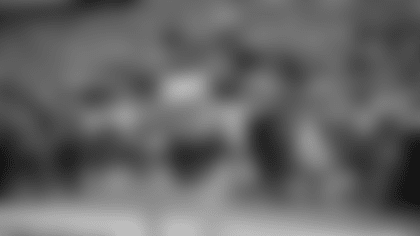JEFFREY LURIE: Hi, everybody. First of all, I want to thank you all for taking the time. Usually we do this every March, and I'm very aware that there's been a time gap of really being able to get together, but the main thing is to see you all and see you safe, and my best wishes to all of you, your friends, your family and everybody. It's been quite a difficult year in so, so many ways.
I think I'd just like to say a few words and then open it up to really any kind of questions you want to ask. You guys can determine everywhere we go on this. I'm going to try to really shoot from the hip and really just express myself in every way I possibly can and try to speak from the heart. That's really, I think, the best way here.
I think that one thing I said in March in the statement that we made is that there is just so much pain, and there's so much pain both in our country and around the world, and obviously we're going through two terrible, terrible pandemics, one that's existed for the history of our entire country, the pandemic of systemic racism, violence to minorities, oppression, all that kind of activities that have been part of our history, and obviously the once-in-the-last-100-years health pandemic that's been devastating, as well.
I think that the important thing with systemic racism and all the behaviors that stem from it are that we all live and experience the pain and at the same time take ownership in that's who we are. I really believe that. It's not that it's the other; it's all of us. It's our country that we love, and it's our friends, it's our family, it's people we work with. It's everybody.
I think there's two real elements of it that I find particularly important, and one is to take ownership of it and step aside for a moment and listen and listen and listen, and then try to use the gift of elevation, which is a human gift, and take ourselves to a higher level of ourselves and try to figure out what we all can do, both as a country, as a city and ourselves and our football team, what can we do to be part of the solution.
This has been going on for far, far too long, and it's our history.
It's really, really important, though, I think, to feel the pain first and not anesthetize it.
I think in our country, and it's only natural in societies probably around the world that we suffer a lot of events, a lot of pain, but we then move on, and we move on too quickly, and so people become statistics. That's not really what this is all about.
You know, when George Floyd is murdered, okay, that's a single black man whose breath is taken away and who dies from exactly what took place, and yet it's somebody we don't know. It's somebody that is a name to us, but we don't know much about that person, about his family, about the troubles or successes that he's had as a human being. How is he as a sister or brother, a son, a father? We don't know much about that.
So one of the things I try to do, it's been sort of a lesson to myself, is how do I exacerbate the pain, because I don't want to be numb to it. So what I tend to do, and it's just personal, is I will take somebody that I either know or widely admire and I'll put them into that face, and I'll say, 'Okay, what if that was Kobe Bryant? Somebody else we lost. What if that was Kobe Bryant whose breath was taken away, how would we feel?'
I go to places like that so that I can fully feel the ramifications of taking somebody's life like that. Ahmaud Arbery, there's a great example, somebody gunned down like that. Okay, what if we took somebody else we recently lost, Chadwick Boseman. That was Chadwick Boseman, that wasn't somebody we don't know. That's somebody that we admired, universally respected for enlivening ourselves and our lives.
You could find an older victim and it could be (Pro Football Hall of Fame) Coach (Don) Shula, somebody else we recently lost. Race doesn't – white, black or different, it's not about that. It is all about that, but at the same time, it's trying not to anesthetize ourselves so that each individual situation becomes paramount, heartfelt in the most intense way.
You know, I just think that that's just one way I make it continually alive. Now, systemic racism, it's our legacy. When you write back on the 400 years of the United States, there's a lot of wonderful, wonderful things that have taken place in our country, and we can all be proud of it. We can all love our country, but to love our country is to own our country, and that's where I really believe strongly that we have to own the good and own the bad, and we won't be able to change the bad until we realize we're responsible for it. I think that has to come from the heart. It's not about, oh, that happened, and there's another one, and that's a statistic. That has to come from opening our hearts.
If we want to expect those that are committing violent acts against minorities, we have to try to get ourselves and others to completely open your heart because if you open your heart, you're not going to put your knee on someone's neck and let them expire. That's from someone whose heart is closed. That's from someone who hates themselves.
We have to learn how to weed out those that are so disassociated from themselves that they hate themselves. That's really, really hard to do. So when we talk about police training, when we talk about legal training, when we talk about healthcare training, when we talk about anything, we have to be – we have to emphasize the importance of loving yourself, respecting yourself, because the narcissism, the hatred, the taking it out on others, the violence, the superiority of treating others as lesser, that's all self-hatred. It's inculcated racism, it's self-hatred, it's self-loathing, and it's a pandemic in and of itself.
That's some of the challenges we face. I've felt this for a long time, and I'm so glad that we're at a situation now where every day it can be paramount on everyone's minds and feel the pain, feel what's really taking place.
You know, from every tragedy – we've all had tragedies in our own lives. From every tragedy is an opportunity, and resilience can kick in, and I know in my own life that's been the case; some of the most wonderful opportunities have occurred from tragedy.
As a country, we're experiencing multiple tragedies all at the same time, lots of stress. But this is a chance to appeal to our higher selves, to step back and be objective about what's really going on here, own it, and create action as best we can in every possible direction.
Anyway, it's been heartbreaking, and on a very deep level for myself and I'm sure for all of you.
COVID-19 is obviously a once in a 100 – it's been a once-in-a-100-year pandemic, but I think we've got to look at the facts of COVID-19. It's not okay. This occurred, it's out of our control, and this is what happened. Far from it.
As somebody who, whether it's our football team or any kind of analysis of policy, I'm for looking at the facts first, and I don't want to – you have to be as apolitical as possible. Let's look what's really happened here. We have 800,000 deaths and rising around the world. We have almost 200,000 deaths in the United States. This is from COVID-19 alone. Thirty thousand in the month of August. Over 1,000 in the United States – over 1,000 every single day. So if I told you that yesterday, five Boeing 737s crashed in the United States, everybody died, well, that's every single day right now, every single day. It's been like that for many weeks.
You know, we are four percent of the world's population, 21 percent of the fatalities. There's a lot to figure out. Why is that the case? Why? A lot of questions to be answered, a lot of questions that will be answered, but the fact of the matter is, like when I discussed George Floyd, Ahmaud Arbery, it's feeling the pain of all those people in the United States and all over the world and wondering, we're the wealthiest country in the world, and 21 percent of the deaths? We're able to socially distance better than any country or we have the potential to, we have lifesaving mechanisms more than any third-world country, but we are and have been the epicenter of exactly what has taken place. That's our history. We have to own this. We have to own the questions of leadership. We have to own the questions of policy, and there's a lot to be discussed here on that in the future.
That's the reality I think we face. I'd rather just say it straight out from my heart. It's heartbreaking. These are needless deaths. Needless. We should be similar to most countries on this planet, and yet we are an embarrassment and a tragic embarrassment. That's where we stand.
Anyway, at the same time, I want to give you all the respect of – we haven't had a chance to talk – football seems awfully trivial at the moment but it's coming upon us. We love the sport, and I think it's important to open up also to questions that relate to the football season.
I think that there's a few things that are topics that it's worth just mentioning because we haven't all had a chance to get together. One of them is somebody we're all really, really close to and respect won the Super Bowl, and Andy Reid, I know I love the man, and I couldn't be happier for him. If it wasn't going to be the Eagles, I'm really, really happy it was Andy, and he'll probably have a chance to win many more.
We have a player that's going to enter the Hall of Fame. That doesn't happen all the time, either, somebody we love and respect in this building, Harold Carmichael, and he's finally going to get an opportunity to enter the Pro Football Hall of Fame, and I just want to mention that, as well.
We've also had significant people that we all really care for and respect that have passed away recently, from Coach Shula to (former Eagles offensive line coach) Howard Mudd, (Eagles Hall of Fame tight end) Pete Retzlaff, (Eagles Hall of Fame running back) Timmy Brown, fellow (Chicago Bears) owner Mike McCaskey. There's a lot of people that have obviously passed away in the last multiple months with the pandemic, but I can't help but mention some of those people because they're all close to us, and Coach Shula is one of my heroes.
On the football side, a monumental event was the passing of the new CBA obviously, and the next 11 years we'll be in a great partnership between the teams and the players, and you can see it in evidence now with the working together with the protocols for COVID-19 and social justice and everything. It's quite an improvement over decades past, and I'm just proud of all the work that did go into this on everybody's behalf, and (NFL Commissioner) Roger Goodell, (NFLPA Executive Director DeMaurice) Smith and everyone else that was a part of that.
And lastly before I open it up to questions, I don't think there's ever been a time when we all realized the importance of voting. Voting has ramifications, everybody, as we know, and maybe it's taken some of us too long, myself included, to realize that, from lower down on the ballot to the highest levels. We have a very important election coming up on November 3rd, and one of the things we've offered to do is to open up Lincoln Financial Field to be a polling place if needed. We're also going to close our offices that day. We've encouraged also our staff to be volunteers in the pre-polling in terms of registration or any help we can be to maximize people's ease of voting, no matter how they're going to vote. We want to see that happen. Too few people that are even registered to vote, I think it's like 60 percent, even vote in this country.
We're dealing with some really important issues, and I think there's a chance to really make a difference when it comes to that, and Philadelphia and Pennsylvania are obviously at the epicenter of potential outcomes in the election. I encourage everybody, and the Eagles will be 1,000 percent supportive of that effort.
Anyway, I don't know what directions you all want to go, but we're all hurting, and I just appreciate you all taking the time to talk to this one person. I'll open it up to questions.
Q. You guys have had some pretty deep conversations as it pertains to racial and social injustice. You as an owner of an NFL franchise, what do you feel like your role is, not just having those conversations, but action after that? (Dave Zangaro)
JEFFREY LURIE: To me, action is the most important. The conversations need to take place. They've always taken place with our team, going back a few years. We've always had a very close-knit atmosphere between our players and ownership and executives, and I think it's served us well and it continues to, because I trust our players. I trust the direction and their feelings of hurt and where they think we should go. I'm more of a listener and I'm somebody that wants to fully support with the resources of our organization and our league whatever actions that are deemed the most sustainable.
So, if I can be a guide in terms of where I think things can be sustainable, then I'm there for them. But as I said to them, I think, yesterday or the day before in our meeting with the social justice committee was, 'I'm here for you guys. You guys take the lead and you will have, as you always have had, our support.' That's just the way we've naturally operated.
I'm really pleased with how they are looking at these difficult, difficult issues and want to come up with something that's sustainable. Not be the first to come up with an action plan, but to come up with things that are really sustainable in the community, in the city, in the country. That's my role.
Q. In regards to the health pandemic, what makes you confident that this season will be able to take place and be completed? And how do you feel about the decision not to have fans at the stadium to begin the season? (Zach Berman)
JEFFREY LURIE: Well, you know, I am optimistic that we'll be able to play our games. So far, things are going awfully well in terms of the protocols. They're very, very detailed, and rightly so. I'm optimistic, but I'm also really cognizant that the virus will control that. We will not control that. I think (Director of the National Institute of Allergy and Infectious Diseases) Dr. (Anthony) Fauci has said that many times.
We will do the very, very best we can as a league and as a team to try to keep everybody as safe as possible. It's inevitable there's going to be ups and downs here, but I think we have a significant roster size, we have positional flexibility. We know going in that there's going to be some unusual games where players might be playing positions they've hardly ever played. But that's part of being a professional athlete. We embrace it. Honestly, (Eagles head coach) Doug Pederson, his staff, (Eagles Executive Vice President/General Manager) Howie (Roseman) and his staff, we've embraced the unpredictability of it. We know that in any given game, there might be one quarterback available or maybe there will be no tight ends and the wide receiver will have to play tight end; or our defensive end is going to be a defensive tackle; or a cornerback is going to have to be a receiver; our long snapper may not be there.
I think the contingencies, the teams that embrace it will have some advantage, having players that are welcoming the opportunity to step in when needed.
I think one other thing is that I think when coaches – it's counterintuitive a bit here – but when coaches are willing to employ rookies and second-year players early on, even though they haven't had OTAs and preseason games, it's going to allow you to have more flexibility in October, November, December and the playoffs, instead of saying, oh, there's a rookie, they're not going to play much this year. It's counterintuitive, but it should be the opposite. We need in September and October to get every possible rookie and second-year player involved, and I know that's the approach.
Q. I wonder, especially particularly in the last week with all of the activism that's gone on in all of the leagues, with people choosing to not play games and NFL teams choosing not to practice, are you concerned that the players of the NFL might either want to postpone or cancel a week of games this year? What would be your advice to players, any of your players, if they came to you and asked you about that? (Peter King)
JEFFREY LURIE: I'm not concerned because I'm supportive of everything that's involved in terms of trying to create attention and social change, and I've always been that way. If we have to sacrifice, we have to sacrifice. But my most important opportunity to discuss that would be what can we do that's really effective, and it's not simply a statement but something that's going to have action involved with it.
I respect the NBA players. They were obviously able to reschedule the game that they missed, but just coming together and taking a stand, I respect that fully, and we've had a history in our country of athletes, mostly independently from Muhammad Ali; John Carlos, the 1968 Olympics; the list goes on and on, all the way through recent times. It's nice to see that leagues and teams now in partnership company come together and show the country that these are really important issues, not just individuals, but these are team issues, company issues, business issues for corporations. We should be out front leading the way.
By the way, these are not simply minority issues. Us who are not in the minority have to lead the way, as well. And when I talk about ownership, that's what I'm talking about. We have to help everybody lead the way, as well.
I'm not worried because I know our players will do what's best.
Q. We haven't spoken to you since early July when WR DeSean Jackson had some social media posts citing quotes that were widely attributed to Hitler. We saw your statement, we know how you feel, but I just want to ask what your initial reaction was to that, to learning about it. Also, as you said in your statement, you want to see how he shows he's educated, and I just wanted to ask how you measure that and what you've seen so far from DeSean in regard to that. (Reuben Frank)
JEFFREY LURIE: Well, I thought the social media posts were disgusting and appalling. I don't think anybody can take it any other way. You're talking about a leader of a genocide, and it doesn't matter what it was a genocide of. Any leader of a genocide is one of the worst individuals and a member of a group of individuals that we've seen both in our lifetime and in history.
I've known DeSean for a long time. Obviously, we all have. He has, I think, really understood the ramifications of that appalling post. So far, everything that we've asked him to do to both educate himself and to learn and take action, he's done completely. So, I would hope that would continue.
I also think that in life, you have to understand fully where a person is coming from. I listened. I listened. It doesn't take away the hurt. It doesn't take away the words. But I think that with DeSean, he's doing the right things, and that has to continue. That's a daily event, and that's where that's at.
Q. It's been four years since Colin Kaepernick first protested on the sidelines. Reflecting back over those four years, do you feel like NFL leadership kind of let the players down on the social justice front collectively, and what kind of knowledge was gained from that to apply moving forward? (Tim McManus)
JEFFREY LURIE: I think that most of the things that Colin was talking about, many of those – many of those, not all, but many of them – struck a chord, certainly struck a chord with me. They weren't that different than I've been watching, hearing and listening to since the '60s.
I think that the NFL probably didn't listen well enough to what he was really saying because I think that we could have, as a league, listened more. That's all. Listened more and not reacted in anything but a listening and learning mode.
Yeah, I mean, I think you listen and you learn. That's how I look back on it.
Q. You've always been at the forefront of wanting innovative offensive minds on your football staff, and this offseason you guys made some significant changes in that regard. You let former Offensive Coordinator Mike Groh go and former Wide Receivers Coach Carson Walsh, and you brought in Senior Offensive Assistant Rich Scangarello, Pass Game Analyst Andrew Breiner, and Senior Offensive Consultant Marty Mornhinweg. What was your role in those decisions and how do you think it's going to play out with so many different voices in that room now? (Jeff McLane)
JEFFREY LURIE: I think that we've always emphasized offensive football and trying to be as dynamic as we can be. The last couple years we were all, as a group, not satisfied with our offensive production. It didn't stop us from making the playoffs. It didn't stop us from making a postseason run. But we always have the belief as an organization – it's part of our DNA – that you want to be a top-five offense to have your best chance of winning the Super Bowl.
These are questions and discussions that happen year-round. It wasn't about any particular people. It was these are our goals, what can we do to achieve, and were we stagnant in any possible way. Let's be as self-critical as possible and try to get to the bottom of – in every way we can, because that's what we've always done.
Most of the head coaches that I've had over the 20-something years have obviously been quarterback tutors, and I believe in that, but I also believe that a coach constructs his own staff. My approach has always been to have weekly dialogue, weekly involvement with all aspects of our operation, and at the same time have enough respect and trust in our head coach, general manager, to let them make the decisions.
That's just the way we operate. It was not a surprise to me at all that Doug (Pederson) wanted to bring in some new voices. He's a good manager. Having a number of coaches around him, that's just a resource management. I'm sure he will compartmentalize and utilize certain coaches for certain tasks and certain aspects, and he can answer that a lot better than I can, but I've got a lot of faith in Doug, and he's humble enough to respond to when we're not good enough to wanting to be better and trying to find a different group of coaches to help him in that regard.
Q. Rodney McLeod said the other day that he puts the onus on the NFL owners in sort of effecting change right now. The things that you have been talking about today are relatively unique, I guess, among the NFL owners in terms of the viewpoints that they are putting out there. Where do you see the rest of the league in terms of have you seen a change in the way that they are viewing things, and do you think there is a stomach for the owners as a whole of trying to effect widespread change? (Bo Wulf)
JEFFREY LURIE: I've only talked to a fairly small number of owners the last few weeks and months about that, but my sense is every single owner I've talked to is committed to trying to find a way to create change. I mean, we're not running obviously the government. We're not in positions of power. But we're in positions of access. We're in positions of having resources.
I see a league that wants to be as proactive as possible. I've seen this for a couple years now. I think it's increasing, and it's really – it's eye-opening in a great way. I just think you've got a lot of owners and a lot of league people that are completely in back of trying to be agents for change and helping the solution, and listen to the players. That's a sea change over the last couple years, and I'm really happy about it.
Q. You will have no fans at least for the first game and I would assume longer. There's a lot of teams with no fans at the stadium. Bills Head Coach Sean McDermott I'm sure feels the same way as a lot of people. He said it's ridiculous that there will be fans in stadiums, in some stadiums, and not in others. When the commissioner, before when the pandemic started wasn't allowing people, players and coaches in the facility to keep them on a level playing field, why, and do you believe, that this is unfair and ridiculous, and why is this happening where some teams will be permitted to have fans when other teams will not at their games? (Howard Eskin)
JEFFREY LURIE: So it's a little bit of a complicated question. I want to go back – I forget who asked the question about fans at our games and I didn't remember to answer it.
Initially there's not going to be fans at our games. We have been trying very, very hard to come up with solutions that are safe and innovative in time for the beginning of the season, and we've had a lot of really creative and constructive conversations with the state and the city, and that continues on a daily and weekly basis. We are hopeful there's going to be real ways of having significant fans in our stadium pretty soon. Maybe not for September but after that, and we're looking at innovative ways of testing, with rapid testing, with point-of-care testing, with home testing. There's a lot of ways to kind of approach this, and we've been incredibly proactive working with companies around the planet to see what they're up to and whether we can implement testing procedures that would allow the public – because the first thing is we love our fans. We know we've got a big home field advantage. We even have an away field advantage in places, as you know, like Washington, Los Angeles, Miami.
It's frustrating, but at the same time, I've got to say, we as a team, (Head Coach) Doug (Pederson) leading the way, really embrace – we're out to win every game. Yes, maybe there's an advantage for a team to have 10,000, 20,000 fans, but we're not going to let that stop us. We embrace the situation.
Do we really want to prevent those 20,000 fans in wherever it is to be unable to watch their team play because we're not able to have fans on the East Coast? I don't think so. Fans are the backbone of the sport. I really believe that – I wouldn't want to sit here and tell you that we're going to stop those fans in Arizona or wherever it is from attending if it's safe there just because we think there's some advantage. I'd rather have them enjoy our sport.
I know that's different than Sean, but just as a philosophy here, whatever the pandemic brings, whatever the ramifications are, let's embrace it completely and try to win every single football game and go full force ahead.
Q. If you don't have any fans, do you have a ballpark figure of what that financial impact would be to the Eagles? Have you had to lay off any staff? (Les Bowen)
JEFFREY LURIE: No, we've made a point of not laying off anybody. That's been a very, very important point for me, and I hope it's never necessary.
Of course, there's significant economic impact, but honestly, what's the unemployment rate? It was up to 22 percent the other day? I don't go there, honestly. We're in a sport that is unbelievably attractive, thriving. The television business will rebound. I would rather worry about everybody else and right now not worry about us. Obviously, there's an impact.
Q. A couple questions ago you were asked about conversations with owners and other owners, and you said you've spoken to some of those owners. How important do you think it is that if there are owners – and we know you can never get anyone on the same page all the time on all issues, but how important do you think it is for someone as open-minded as yourself, supportive of the players and the fight and the cause to take maybe a leadership role and have those conversations with other owners who may not necessarily have the same viewpoint and try to impress upon them the importance of being more understanding, being more compassionate and seeing the plight of some of these people and the players who are going through this? (Rob Maaddi)
JEFFREY LURIE: We have some meetings scheduled. We have some meetings scheduled. There's going to be a lot of meetings scheduled.
I actually believe that in most of the owners' hearts and minds, they are really wanting to be proactive. I really believe that. And I'm not leading the way, they are. They're leading the way. It's a sea change. It's very important, though, that we support policies that are part of the solution, and in terms of elected officials, locally, statewide and maybe obviously important nationally.
I do think that it makes it somewhat easier to devise policy changes or devise methods that can be effective if you have leaders that are quite open to it, if you have political office holders that are open to it.
I do believe that elections really do matter, and this is a stark one. My hope is that enough people will vote and will feel it's representative of the population and where we're at, and that owners will reflect that.
I really have a lot of faith in my NFL brethren. I really, really do. I don't see myself as leading the way in the slightest. I see it very differently.
Maybe I express it differently, but I'm very close to some of them, and they suffer, and they're embarrassed by our country and embarrassed and hurt. And know we have to listen, because we don't even understand it as well as those that are particularly oppressed.
Q. You talked about how difficult this year has been for so many people and so many negative things happened. One of the positives, you also mentioned Harold Carmichael getting honored. He's been around this organization so many years, and I've noticed you brought in so many other alumni, Connor Barwin is back, Brent Celek is back, Darren Sproles and even Jason Avant. How important has that been for you to create that sense of family? (John McMullen)
JEFFREY LURIE: Yeah, it's a great question. It's intentional. These are four of the most outstanding individuals we've ever had, and they are part of the culture that continues. When a Darren Sproles can continue the culture with (RB) Miles Sanders and (RB) Boston Scott and (RB) Corey Clement and guys like that, returners, (WR) Jalen Reagor, it's big. When Brent Celek does the same, Connor, Jason Avant. These are people that we all really, really respect. And that – the reason I think we have been successful to the extent we are and have that atmosphere, that family atmosphere, is because of these kinds of guys, and we have them in the locker room now. They'll be the future Connor Barwins and Brent Celeks and Darren Sproles and Jason. They're all there.
It's very important. It's probably one of our little secret sauces, and that's not so secret, but it's important.
Q. That conversation that you just touched on about Eagles culture is a great segue to my question, and I know you don't have anything to do with the operation of Washington's franchise, but given everything that's come out in the past few weeks about their situation in regards to harassment or alleged harassment of women, how does that strike you as a fellow owner, and are you concerned about the damage to the NFL's reputation, the public trust, just given the very serious allegations coming out of Washington? Have your views on Washington Football Team's Owner Dan Snyder changed? (Jarrett Bell)
JEFFREY LURIE: It's not going to be a satisfying answer because it's not something that is easily talked about in the public sphere. We want every franchise to be operated with the most integrity possible, and to have the best reputation in its community as possible, and to be change agents in every direction possible in their community, and role models. I don't want to comment on another franchise. I've never, ever done that. I will, now that you're reminding me, I do want to wish Coach Rivera (Washington Football Team's Head Coach Ron Rivera) well. He's a family member of ours. Stephanie and my wife play golf together, and Ron is somebody I really respect, and I know we'll be facing him our first game, but he's a high-quality person in every sense of the word, and I'm just very concerned and I wish him the very best.
Q. I understand that. You said you're going to shoot from the hip – (Jarrett Bell)
JEFFREY LURIE: I don't mind you asking the question because that's you, but I don't want to comment – I don't feel it's my role to comment on another franchise. I really don't. I don't ever feel we should put ourselves above another team. I just don't. We have our own weaknesses. We have our own soul searching to do. We all do.
I think the best possible for us all to operate in is with a degree of humility. The world is difficult. We have to be humble and admit to ourselves our own failings and not just talk about problems elsewhere.
I wanted to share with you guys a couple quotes because I just think – I didn't want to put them in this, but I just think that it's something that I read and I respect and I think they're apropos to where we're at, and some of them are timely for other reasons that you'll see.
One is this: "In times of crisis, the wise build bridges while the foolish build barriers." And we see that all around us, the barriers, the divisiveness, the polarization. That's from Chadwick Boseman as King of Wakanda. That's one quote.
Two other quotes that just serve me well, this is from Martin Luther King, Jr.: "Man must evolve. For all human conflict, a method which rejects revenge, aggression and retaliation, the foundation of such a method is love."
And lastly from Gandhi: "The weak can never forgive. Forgiveness is an attribute of the strong. A coward is incapable of exhibiting love. It is the prerogative of the brave."
And so those just help me a little bit sometimes to get through a day. They mean a lot. I don't know what else to say. I just hope everyone stays safe. We all have to be in this together. We don't know what's going to happen from day-to-day whatsoever, but our thoughts should be with each other and ourselves, and let's really soul search ourselves and figure out how we can get everyone to love themselves so they don't act out on the rest of the world and the world they're living in.
You know, when you see narcissism and anger and revenge and outright racism, it's just the worst of us, and so I hope in my little way I can at least stand to point to myself, point at myself, and say, Jeffrey, every morning or every night, try to be the best of yourself, not the worst of yourself. It's easy for us to stoop low, but it's much harder to step above it and to be the best of ourselves.
I don't know, I'll leave you with that. It's far from perfect, but I'll leave you with that. Thank you all very much. I took way too much of your time, but anyway, thank you.




